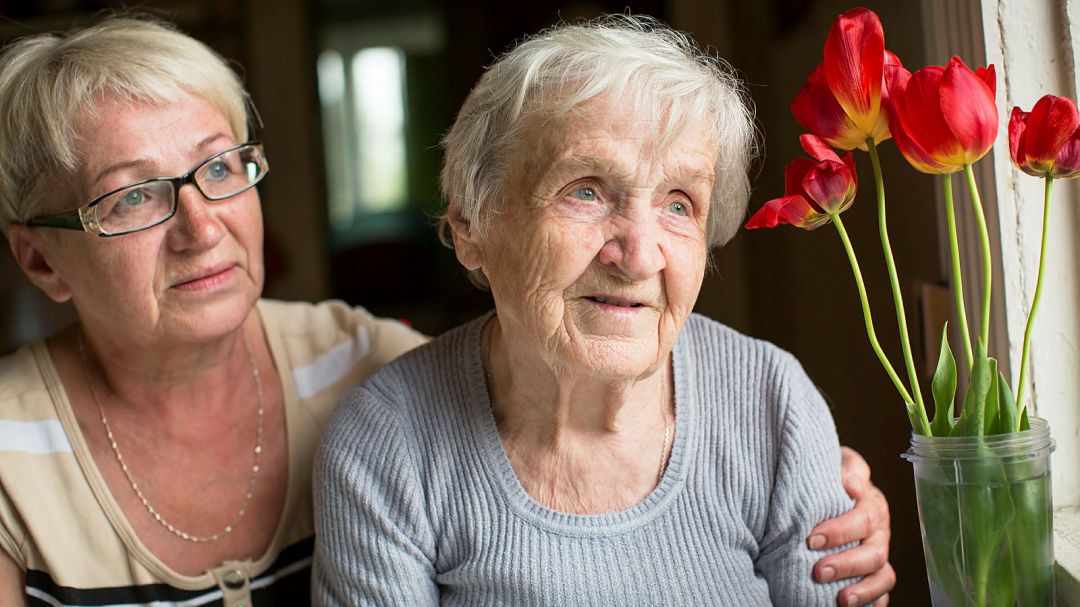Medical researchers spend hundreds of millions of dollars every year in hopes of discovering therapies that might spare the elderly from the anguish of Alzheimer’s Disease and Dementia. While some discoveries appear promising, most have so far failed to produce any reliable method of slowing the loss of memory and bodily control.
This does not mean that families of dementia sufferers can do nothing to alleviate the distress that their loved ones experience as their mental confusion deepens. They can encourage patients to engage in any number of simple, enjoyable activities that bolster health, exercise the mind and offer a sense of comfort amid the chaos.
DEVELOPING AN “AGING STRATEGY”
Picket Fence Home Care strives to keep its clients abreast of the latest in Alzheimer’s research. What follows is a handful of recommendations that can make life more fulfilling for dementia sufferers. Such activities may become part of a comprehensive “aging strategy,” which can be developed in coordination with a doctor.
If otherwise healthy people have a family history of dementia, they might experience long-term benefits by taking action before the disease takes hold.
Speed-of-Process Training
At the 2016 annual meeting of the Alzheimer’s Association, a Chicago-based research and advocacy group, scientists presented findings suggesting that computer-based games known as “speed-of-process training” may reduce the risk of dementia later in life.
The study, known as Advanced Cognitive Training for Independent and Vital Elderly (ACTIVE), must still be confirmed through additional testing. However, experts agree that the results are cause for cautious optimism (A scientific review of ACTIVE is available here). People who are at risk for Alzheimer’s might ask their doctors whether speed-of-processing games are a worthwhile option.
Patients should be aware that popular “brain-fitness” games marketed by profit-oriented companies are not the same as speed-of-processing games. In fact, there is scant evidence that playing these games can delay Alzheimer’s.
Regular Exercise
Swimming, cycling or light jogging can reduce the risk of cardiovascular disease. This, in turn, may lower the risk of dementia. A study published in the Journal of the American Heart Association found that “women aged 65 to 79 years with cardiovascular diseases… tended to be at increased risk for cognitive decline” compared with female peers who were free from cardiovascular ailments.
Physical activity increases the flow of blood and oxygen to the brain, which is believed to protect brain tissue against age-related damage. Scientists have found a “significant benefit of long-term, regular exercise on cognition, dementia risk, and perhaps dementia progression,” according to a study published in the Mayo Clinic Proceedings journal in 2011.
Exercise can also be just plain fun. People at risk for Alzheimer’s should talk to their physicians about a fitness regimen. Picket Fence Home Care can help client through their fitness routines.
The Alzheimer’s Association also stresses the importance of controlling conditions such as high blood pressure, high cholesterol levels and diabetes. All these can contribute to cardiovascular problems.
Overcoming Depression
Depression in certain groups of adults increases the likelihood of Alzheimer’s later in life, a 2000 study published in the British Journal of Psychiatry reported. Combating depression is crucial, especially since the onset of Alzheimer’s can exacerbate victims’ feelings of isolation and anxiety. This is why Picket Fence Home Care emphasizes the importance of companionship for the elderly.
AS DEMENTIA TAKES ITS TOLL
Alzheimer’s is an irreversible condition that eventually renders its victims unable to remember even their closest family members and incapable of functioning on their own. Picket Fence’s home-care specialists know the importance of engaging Alzheimer’s patients in enjoyable, reassuring pastimes for as long as they are able to participate.
It is also important to get as many loved ones as possible involved in these activities. This lets the patients know they are cared for and relieves stress on principal caregivers.
Recording history
America’s oldest generation lived through the Great Depression, the Dust Bowl, World War II and the 1960s Civil Rights movement. Once they are gone, these memories go with them. Younger people may find it fascinating to sit down with their older relatives and ask them to describe their experiences. They might preserve this oral history on video or even publish it in an online blog. People in the early stages of dementia may not remember what they ate for lunch, but they can recall long-ago events as if they had just occurred.
Photo Albums
Even when dementia patients can no longer identify their loved ones by name, they will still know that a person “belongs to them.” Picket Fence’s home care providers know that viewing old family photos can foster a sense of peace or accomplishment. Some Alzheimer’s patients are especially fond of photos of newborn grandchildren and great-grandchildren, even if they have never met.
Scripture Readings
Since many Baby Boomers were raised in religious families, reading verses from sacred books can offer comfort. The patients may even start reciting them from memory.
Music and Singing
Playing recorded music from a dementia patient’s youth can evoke pleasant emotions. They may especially enjoy singalongs – anything from pop music to hymns.
Games and Puzzles
Many elderly people love the challenge of a crossword puzzle or numbers game. This is the kind of activity that clients can do together with home-care providers. The AARP has a webpage dedicated to online games. They are also available on the websites of newspapers.

